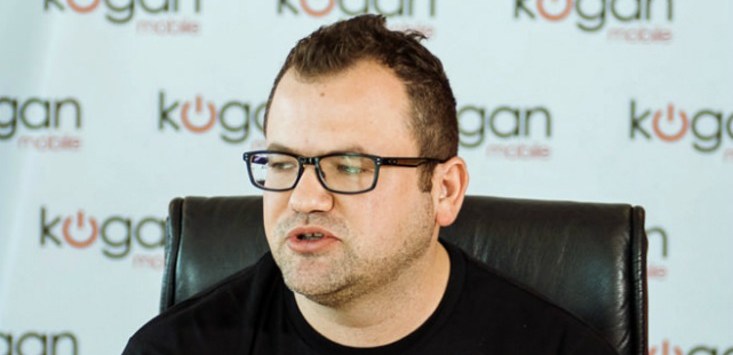
Ruslan Kogan, chief executive of online retailer Kogan.
A major slowdown in Australian e-commerce spending has seen Kogan report its first loss since the company’s 2016 ASX listing, forcing the retailer to reassess its product line and start reducing its employee headcount.
In its results for the 2022 financial year, released Tuesday, the e-commerce giant reported a statutory net loss after tax of $35.5 million, down from a profit of $3.5 million the year before.
Declining sales were a major contributing factor to the dim financial results.
Sales of Kogan’s ‘exclusive’ brands, including Kogan-labeled appliances and consumer electronics, fell 17.6% over the financial year to $311.6 million.
Third-party brands fell even further, recording a 35% downturn over the year and resulting in $176.6 million in sales.
Ruslan Kogan, the company’s founder, CEO and namesake, admitted the company miscalculated consumer demand once COVID-19 lockdowns came to an end.
An “acceleration of sales continued for many months in the first year of the pandemic, and we bet that the trend was not going to stop,” he told investors.
“To ensure we could be there for our customers when they needed us most, we increased both our range and volume of inventory, as well as our logistics footprint to match this expected level of growth.
“We were wrong. As the true volatility of the situation settled in — caused by stay-at-home orders and lockdown ambiguity — ecommerce did not continue to grow as anticipated.”
His statement echoes recent commentary from Shopify founder Tobias Lütke, who this month laid off 10% off the company’s employees after ceding the “bet” on continual lockdown-era online sales growth “didn’t pay off”.
Kogan is now reassessing its product offering to determine which of the 23 million products available through its exclusive, third-party, and Marketplace platforms should go.
“The business has also been performing extensive range reviews to ensure it is offering the most in-demand products at the most affordable prices, without investing in under-performing product categories,” the company statement read.
“By focusing on in-demand products, and removing inefficiencies in the long-tail of the product range, the business will offer a curated range of products at lower prices, driven by the efficiencies created.”
The cost of storing and transporting unsold inventory also weighed on the company, however, Kogan said the value of in-warehouse inventory has fallen by 28.1% over the financial year.
Some $17 million in payments linked to the company’s 2020 acquisition of New Zealand online retailer Mighty Ape also affected the results.
As a result of the sour financial report, Kogan is now chasing “operational efficiency”, and has revealed plans to downsize its headcount.
This will result in “a gradual reduction in team size in order to realign with current trading conditions,” the company said.
Given the grim results, no dividend was declared for shareholders.
At the same time, the retailer’s financial statement noted “significant equity-based compensation expenses” flowing towards Ruslan Kogan and chief financial officer David Shafer.
That statement reflects in-the-money options assigned to Kogan and Shafer after the company’s November 2020 AGM, which are now reflected on the company’s financial statement.
The news comes just weeks after Kogan took out an Australia Post Online Retailer Industry Award, beating out Babybee, Beserk, Bulk Nutrients, Koh, THE ICONIC as the top retailer with annual revenue over $1 million.
Handpicked for you

Shopify Capital: E-commerce giant to offer loans of up to $2.5 million to Australian businesses



COMMENTS
SmartCompany is committed to hosting lively discussions. Help us keep the conversation useful, interesting and welcoming. We aim to publish comments quickly in the interest of promoting robust conversation, but we’re a small team and we deploy filters to protect against legal risk. Occasionally your comment may be held up while it is being reviewed, but we’re working as fast as we can to keep the conversation rolling.
The SmartCompany comment section is members-only content. Please subscribe to leave a comment.
The SmartCompany comment section is members-only content. Please login to leave a comment.